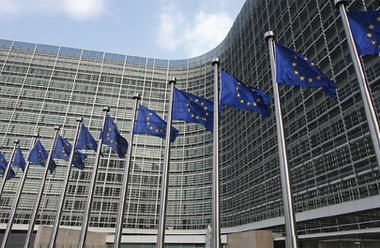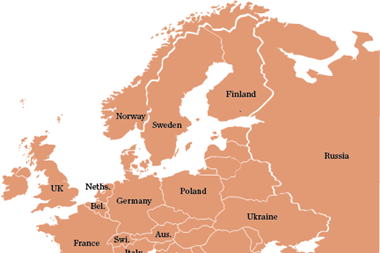The UK government must prioritise a strong economy for the benefit of pension schemes, or the “vast majority” of British people will suffer in retirement, the sector’s trade body has said.
The Pensions and Lifetime Savings Association (PLSA) has warned that the sustainability of UK pension funds depends on the strength of the country’s economy, its regulatory regime and its financial services sector – all of which could be under threat as the UK negotiates its exit from the EU.
Graham Vidler, director of external affairs at the PLSA, said: “A successful Brexit matters to the 20m workers, savers and pensioners served by our pension schemes. If the economy weakens, it will make it harder for sponsoring employers to keep defined benefit [DB] schemes open and reduce the funds individuals can afford to put into defined contribution [DC] pensions – but these risks can be reduced if the government addresses the points we raise.”
DC schemes also face significant challenges, the PLSA said in a commentary, especially if a weak economy translates into poor wage growth.
“Current levels of contributions to these pensions are too low to provide adequate retirement incomes for Britain’s savers,” the industry group said.
“Therefore, it is essential contributions increase in the near future. If the OBR’s forecast of faltering wage growth proves correct, it will be difficult for employers and employees to increase contributions.
“The vast majority of the population would then have to expect a poorer retirement.”
Prime minister Theresa May yesterday morning gave her most detailed speech yet on the subject of Brexit.
She stated that any deal reached “cannot mean membership of the single market” because the caveats that come with it would mean “to all intents and purposes … not leaving the EU at all”.
She added: “We do not seek membership of the single market. Instead, we seek the greatest possible access to it through a new, comprehensive, bold and ambitious free-trade agreement.”
However, she said a new deal “may take in elements of current single-market arrangements” in areas such as financial services, “as it makes no sense to start again from scratch when Britain and the remaining member states have adhered to the same rules for so many years”.
Free trade or no trade?
The PLSA’s commentary stated that a “successful outcome” for Brexit would include “replication of both the current UK/EU framework for free trade in goods and existing EU free-trade agreements with third countries”, in order to support pension scheme sponsors.
It added: “Pension schemes need full access to global markets and to the world-class expertise currently available from the UK’s successful financial services sector. Any dilution of the City of London’s strength would have a negative effect on pension saving.”
Failure to reach a Brexit deal within the two years scheduled for negotiations could mean the UK defaults to trading rules set by the World Trade Organisation (WTO).
The PLSA said this would cause “major disruption”, adding: “On no account could the pension fund industry support a regime based only on WTO rules.
“This would be likely to cause economic harm, create regulatory barriers and undermine essential pensions support services.”
Regulatory carve-out
The PLSA, despite its demand for open access to Europe’s markets, urged the government to protect UK schemes from any future EU rules – particularly the holistic balance sheet concept.
The idea was abandoned by EIOPA after long-running battles with national bodies, but the PLSA claimed a similar plan remains possible and wants protection from any future solvency rules.
“During the negotiation of IORP II, the UK was successful in warding off the threat of an EU solvency regime for pensions, which could have resulted in a bill for British business of up to €650bn,” the PLSA said.
“While we believe high levels of access to the single market are very important, it is also essential that any future moves by the EU to propose a new solvency regime should not apply to defined benefit schemes in the UK, unless they also operate outside the UK.”
The IORP Directive is due to be implemented in January 2019, while the deadline for Brexit negotiations is likely to be March 2019.










